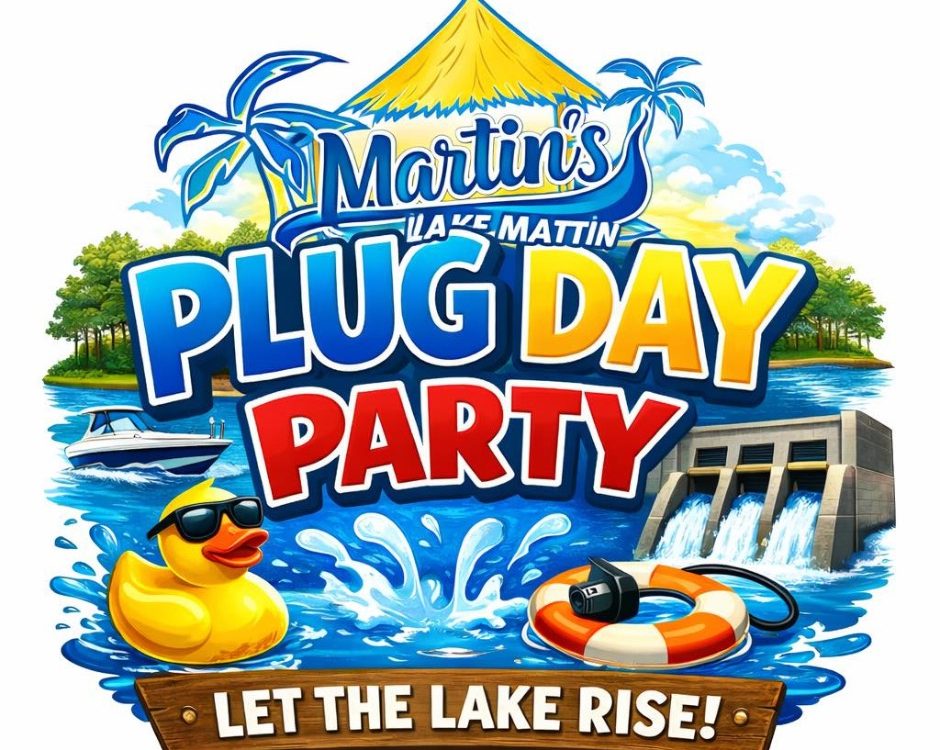3 Secrets of Septic Tanks

Local Restaurants Remodeling Near Lake Martin
April 7, 2025
Restaurant Favorites Around Lake Martin
April 11, 20253 Secrets of Septic Tanks

3 Secrets of Septic Tanks
In this blog, I am going to talk about 3 secrets of septic tanks you should know so that you can avoid any problems later on.
Imagine
The day you’ve always dreamed of is here! It’s your first Fourth of July at Lake Martin in the lake home you recently purchased.
You’ve been anticipating this day since you started your search back in April by reading the Lake Magazine “Buyers and Builders” issue. You did your homework, found a home, closed on the sale, and now you’re putting the final patriotic decorations up in the yard by the water.
Your family and friends will be arriving in minutes. Aunts, uncles, nieces, nephews, friends, plus your kids, plus anyone you have ever met, are barreling down the highway to be there to enjoy the holiday. Sure, the home will be crowded. But it’s Lake Martin, right? That’s what we do here.
As you set up the last mini American flag in the grass, your foot sinks down into a spongy mess that you haven’t noticed before. When you pull your foot out, you notice it smells. It smells bad. In fact, it smells horrible.
With great dread, you realize what the smell is. The septic tank has overflowed. Your wastewater is seeping out. It’s an emergency. Your concern was “red, white, and blue” but now it’s “number one and number two.” Just then, all your friends and family show up, plus a few more guests you didn’t invite (surprise!).
How could you have avoided this?
A little knowledge goes a long way in buying homes anywhere, but especially in a highly specialized market like Lake Martin.
Almost every home on Lake Martin is on a septic system. A short definition of the process is that all your waste water and its related solids go in to a septic tank that is located in the ground on your lot. After it biodegrades somewhat, the liquid leaves the septic tank and goes in to another part of your lot called a septic field. There, underground leach lines or field lines distribute the wastewater, where it is slowly absorbed back into the ground.
Those Lake Martin homes that don’t have their own septic tank are part of a community septic system. In that setup, the home’s waste goes in to a smaller tank at the house. Then, it is pumped up into the community system.
Here are just 3 (of many) possible secrets of a septic system that might help you avoid stepping in it on Independence Day. (ok….. I realize that these are not really secrets. I was trying to be alliterative.)
1. Septic systems are rated by bedrooms, not bathrooms
When I first started selling real estate here, I learned that septic systems are approved by the Health Department in the County where the home is located. The first of the 3 secrets of septic tanks I learned was that when the County approves a system, they don’t look at the number of bathrooms in the house. They pay attention to the number of bedrooms. I guess the reasoning is that it doesn’t matter how many potties are in a home. It only matters how many folks are using those potties.
I have often run in to this issue when buyers are considering purchasing a home that they know they would want to expand. A question that a savvy buyer will ask is, “How many bedrooms is this home’s septic system designed to service?” That will tell you if there is potential to expand.
In fact, when my buyers are considering an expansion, the first questions I ask are “where is the tank, where are the field lines, and what is its rating?” The answers to those questions will greatly determine what is possible.
2. A community septic system still needs inspection
Let’s say the home you are considering is part of a community septic system. Does that mean you can relax and treat it like a sewer system in Gotham City?
Not at all. It is always good to get a septic inspection before a purchase, even in a community septic system.
Most homes that are part of a larger system still have their own mini-tank on their lot. That tank is likely very near the home. And guess how that waste gets from your mini-tank out to the community system? A pump.
Guess what happens if your pump fails? Or you have an electrical problem that interferes with the pump? Yep. The septic soup is about to be on the menu.
If the pump quits working, usually there is an alarm on it. Those septic pump alarms have a red light and the most ear shattering, shrill noise. It’s super irritating to hear, but a lot better than stepping in the mess that is brewing. I call those alarms “The Party Is Over” alarm. If you hear it, tell everyone to go home immediately and call a professional.
3. If they say “We’ve never had trouble” – Trust But Verify
Many a well-meaning seller or home owner will assure you that there is no need to inspect.
“We’ve owned this lake house since the 1970s. We’ve had three generations raised here and never had trouble with our tank. You don’t need an inspection.”
I have heard assurances like that only to have an inspector pump the tank and find it full of roots or the tank walls collapsed. I don’t think the sellers were trying to be deceptive, and I believe it when they say they have never noticed any problems.
But I have also seen instances where the family cabin hadn’t been used much in the last 20 years so the system had not been stressed in quite a while. So when new buyer adds on a wing to the home and invites 50 people to that first Fourth of July Party, things get interesting.
If you are a buyer you need to get your mind right on the importance of septic systems in a Lake Martin home. You are much better off to spend the approximate $900 for an inspection now and hear good news than to skimp out and discover bad news later.
If you are a home owner and haven’t had yours inspected in several years, take my advice and let a pro look at it.
Then, spend the money to fix it, if need be. It might not be as flashy as dropping cash on a fire pit or shiplap. It is true that it is a repair that “you don’t see” because almost all the parts are underground.
But trust me, not seeing your septic system is way better than seeing what happens when it fails!
I originally wrote this for Lake Magazine’s April 2025 Issue.
Real Estate on Lake Martin
If you have questions about real estate, then contact me via phone, email, or my Contact Page. My name is John Coley, and I’m a realtor on the lake. I would love to help you out with selling or buying real estate.
If you found this blog on the 3 Secrets of Septic Tanks helpful, then click the links listed below for more blogs about septic tanks:
Septic Inspections on Lake Martin
Also, for more helpful information about living on Lake Martin visit my YouTube channel. I post informative and fun videos that can help make decisions when moving to Lake Martin.

